Quetta hospital bombing: 'There were heaps of men lying over each other'
- Published
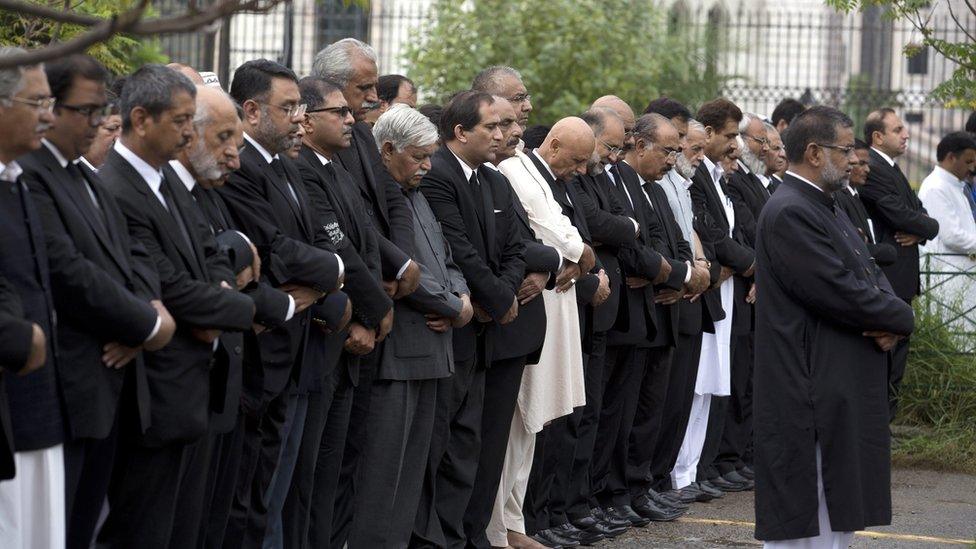
Pakistani lawyers offer funeral prayers for victims of the bomb attack
The scene of the attack in a Quetta hospital that killed more than 70 people and injured more than 100 on Monday will haunt its witnesses for a long time, says Shah Mohammad, a local lawyer and office-bearer of the Balochistan Bar Association.
He was asked over the telephone by a colleague to reach the Civil Hospital because the president of the Bar, Bilal Kasi, had been shot.
As he reached the hospital, Kasi had died, and there were "hundreds" of lawyers crowding the gates of the emergency ward.
"The blast happened when the body was being carried out through the gate. I fell down with the impact, then got up and took to running," he says.
But soon after, he stopped and looked back - and saw the scene he says he will never forget.
"All around the emergency gate, there were heaps of men lying over each other; some dead, some injured. There seemed to be hundreds of them. Some of the bodies were burning, some were torn to pieces. Many of them had been my lifelong colleagues."
Pakistan lawyers mourn Quetta attack
The lawyers who survived were able to regroup, but they didn't know how to handle that scene.
"The hospital staff had disappeared. We didn't know where to start. Our minds had gone numb. Many of the victims simply bled to death because there was no first-aid available."
While this may be the most tragic attack seemingly targeting lawyers, it is certainly not the first.
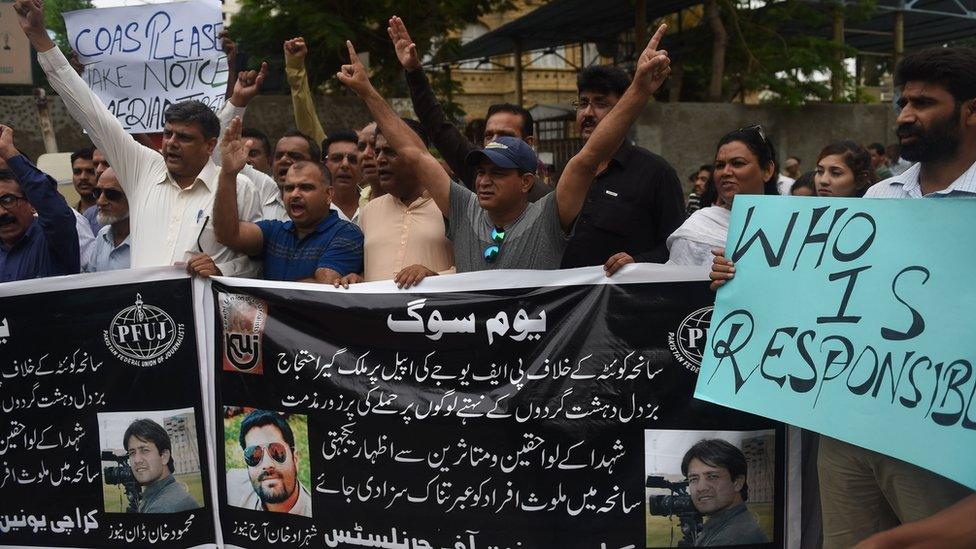
Journalists took to the streets on Tuesday to protest the killing
Since 2007, at least 11 lawyers and three judges have been killed in militant violence in Quetta. Some were killed in sectarian attacks, others died in suicide bombings, while some were kidnapped and tortured to death, with their bodies dumped on the streets.
Balochistan province, of which Quetta is the capital, has been torn by a decade-old separatist insurgency carried on by secular-nationalist ethnic Baloch groups.
But it has also been home to an array of Islamist militants, ranging from the Afghan Taliban to their Pakistani religious and sectarian allies such as factions of the Pakistani Taliban (TTP) and Lashkar-e-Jhangvi (LEJ).
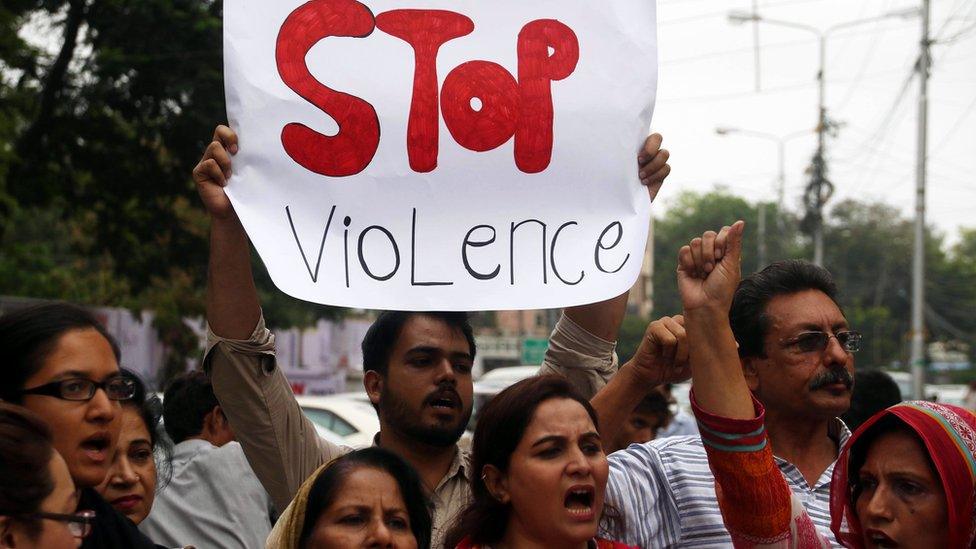
People in Karachi also held a protest in solidarity with the Quetta victims
For several years, the Pakistani military has been conducting an operation against the separatists, and has often been accused of using Islamists to counter them - a charge it denies.
But after an apparent lull in recent months, a new wave of hostilities has been in evidence, and lawyers have been its apparent target.
In June, militants gunned down the principle of Quetta University's law college, Barrister Amanullah Achakzai, while another lawyer, Jehanzeb Alvi, was gunned down in early August.
The gun attack that killed Bilal Kasi on Monday and led to the carnage at the hospital was the third attack on lawyers this year.
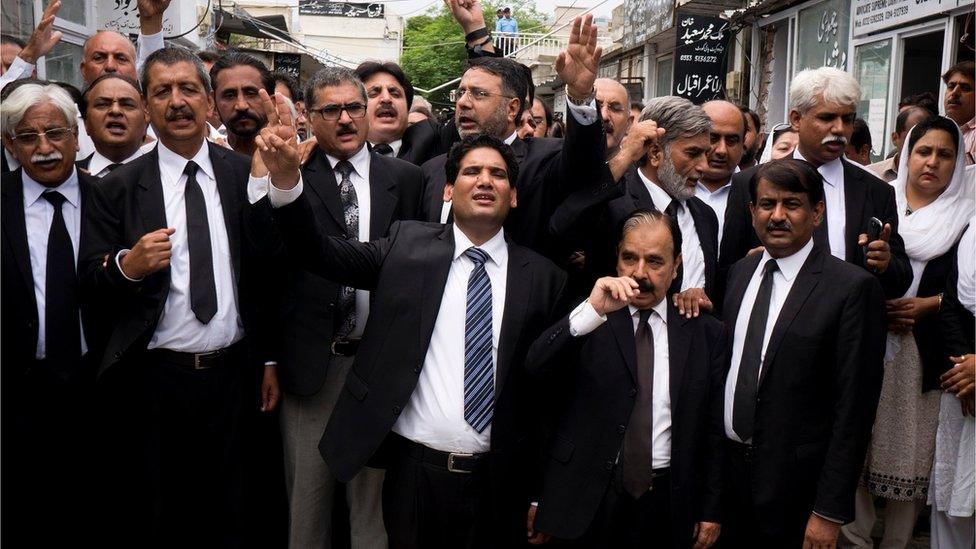
Lawyers chant slogans condemning the bombing
But why have lawyers become targets?
"This is because lawyers are a more visible and vocal section of the society," says Amanullah Kanrani, a veteran lawyer and former advocate-general for Balochistan government, who was also at the scene of the attack.
They are politically active, and, when one of their number is attacked, they will not hesitate to make themselves heard - through protests and strikes demanding better protection of lawyers, he says.
"This may be what the attackers want," he adds, as many anti-government militants wish to undermine the authorities and make them appear powerless.
Mr Kanrani received splinters in his arm and leg which were easily cleared by the hospital staff and he was discharged after receiving treatment.
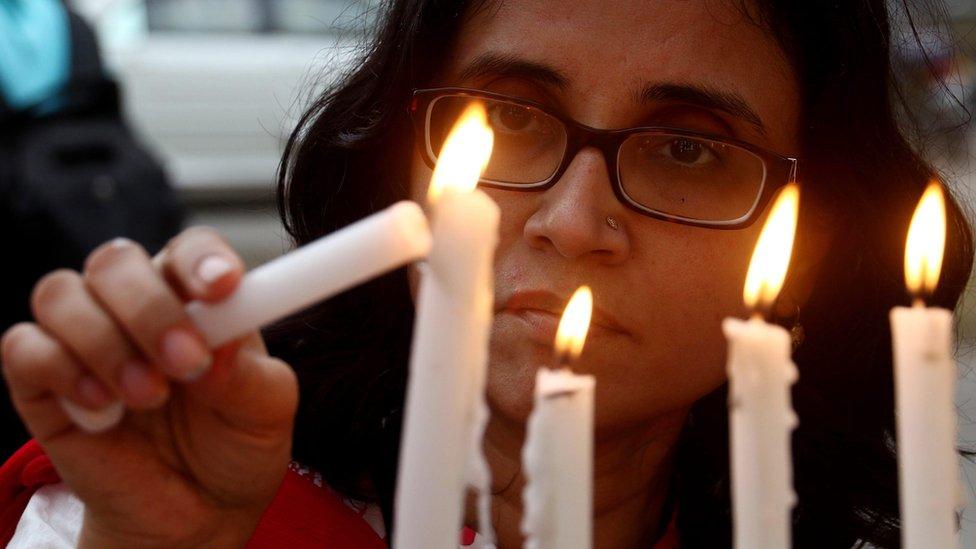
More than 70 people were killed in Monday's attack
"Despite their nuisance value, lawyers… are just like any other non-official section of the society," with little influence and inadequate protection, Mr Kanrani says.
Lawyers, like other civilians, are "a hostage to a situation that has been evolving between the militants and the state since 9/11."
Asked how safe and professionally independent the lawyers feel in such circumstances, Mr Kanrani sounds rather pessimistic.
"We must get realistic about it. It's not going to get any better. Every arm of the state has its own set of priorities. One arm moves to eliminate the militants, the other moves to supply them with weapons. How can you expect safety and independence in a situation like that?"
- Published9 August 2016

- Published22 February 2014
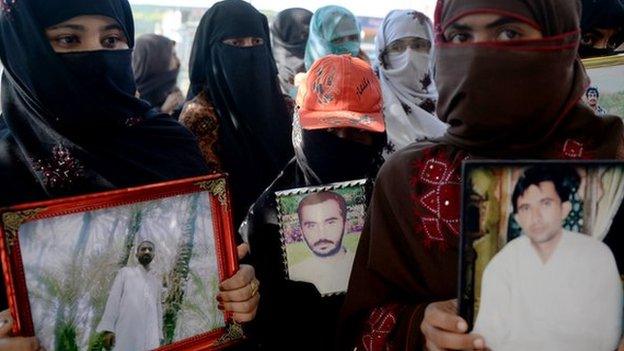
- Published6 October 2015
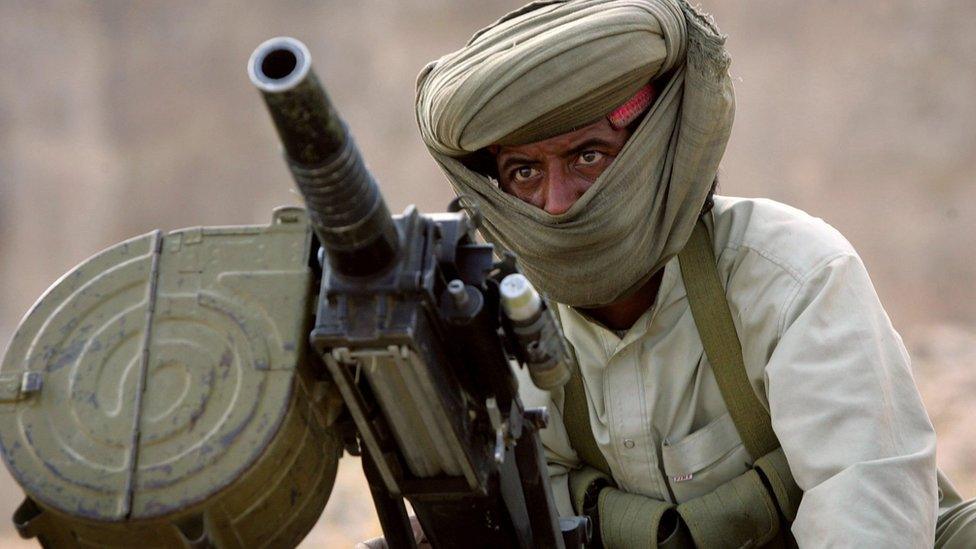
- Published15 March 2024
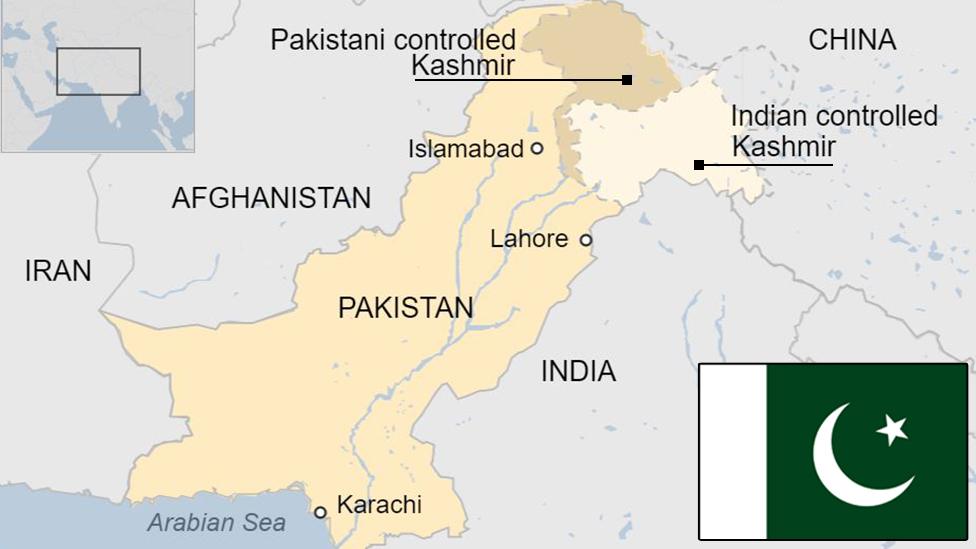
- Published4 March 2019